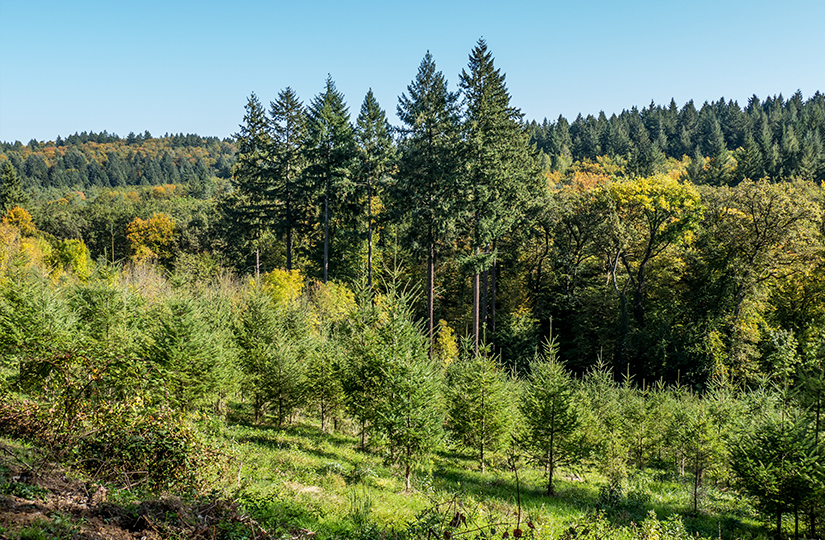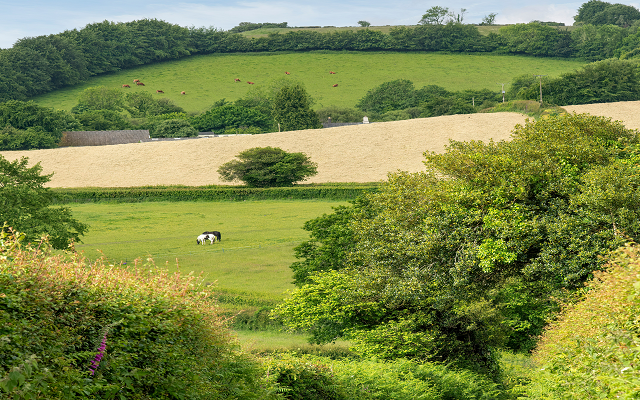Accelerating Tree Planting in England
The question of how to accelerate woodland creation in England in order to meet government tree planting targets has risen to the top of the agenda in recent months. It is vitally important in the fight against climate change, which was until COVID-19 the greatest challenge of this year, but last year just 1,400ha of new woodland was planted in England.
This is why Strutt & Parker was delighted to sponsor the Accelerating Woodland Creation Conference organised by Ecosystems Knowledge Network this week. Livestreamed from speakers’ homes to about 150 delegates, the conference brought together online land, woodland and forestry professionals to explore how to meet the government’s pledge to plant 30,000/yr hectares of woodland by 2025.
Speakers included Defra Minister of State Rt. Hon. Lord Goldsmith who called for “genuine collaboration” in meeting our greatest ever ambition for tree planting. On the importance of trees in tackling climate change, Lord Goldsmith said: “The UK Government was first in the world to legislate for net zero emissions. The Climate Change Committee and others have shown that there is no pathway to net zero which doesn’t include a major commitment to restoring and protecting forests. So our commitment to plant 30,000 trees by 2025 is an important part of that.”
He stressed the importance of ensuring a joined-up environmental strategy, integrating policy across departments such as flood risk and nature recovery and recognised the need to streamline the tree planting planning process, adding that he hoped the English Tree Strategy would answer a lot of these questions.
He was clear though that the government cannot deliver this alone and that it will require genuine collaboration between businesses, landowners, farmers and communities, to build on the “great work already carried out”.
“We need firms to change the way they do business, and for foresters, local communities, landowners and farmers to plant trees on their land and see woodland creation as a financially viable option. We need more private investment in tree planting schemes, and we need the public sector to make land available that is not needed or suitable for house building or development.
“We are going to be doing things on a scale never seen before in terms of forestry and woodland management,” he said.
We were delighted he reassured farmers and landowners that they did not need to wait for the introduction of the Environmental Land Management system (ELMs) before they start planting trees, pledging that land managers who plant trees now will not be disadvantaged once ELMs becomes available.
Jon Lambert, my colleague at John Clegg & Co, echoed a theme heard again and again: the biggest problem lies in unlocking the land available for planting, from tiny coppices to large-scale plantations.
He suggested consideration should to be given to introducing new incentives to persuade farmers to change land use.
Sir William Worsley, head of the Forestry Commission, added: “It’s not the money that’s the problem, it’s finding the land” – but stressed the importance of growing food, “I believe good land should be producing food, that is really important”.
This was another theme that ran through the conference – we must be focused on planting the right trees, in the right place for the right reasons. Woodland creation is not right for the best and most productive agricultural land we have, nor for areas of the country which are environmentally valuable in their existing state.
There were calls for an agri policy that broke down the barriers between forestry and agriculture and a blend of public and private finance to be used to incentivise landowners to plant trees as well as a push to coordinate urban and rural planting.
There were ideas from selling nitrogen credits and planting on former landfill sites to including forestry and agriculture in STEM education and motivating a future generation of foresters.
This was a conference filled with passion for the future of forestry and it filled me with optimism about our ability to collaborate and rise to the challenging targets set by government.






